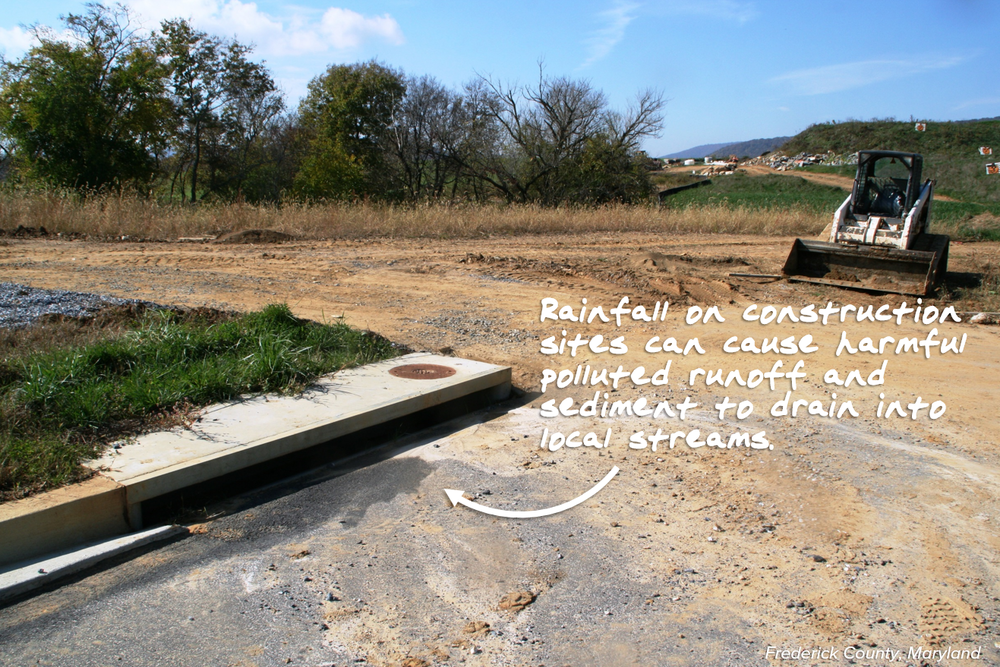
The Monocacy River is a vital source of drinking water, recreation, and tourism in Frederick County, but its water quality is dangerously impaired. This year's update to the Monocacy Scenic River Management Plan contains key provisions that will prevent pollution from entering the Monocacy, restore its biodiversity, and protect it for both drinking water and recreation for future generations.
Last night, the Monocacy Scenic River Citizens Advisory Council held its Frederick informational meeting and public hearing on the Plan. This group, comprised of 5 Frederick County residents and 5 Carroll County residents appointed by each county's governments to advocate for the Monocacy River, spent the past two years writing the Plan. It contains chapters on the Monocacy's physical environment, history, ecology, and uses, as well as 77 recommendations to local governments to safeguard the river for future generations. The recommendations in this plan will go a long way toward protecting the Monocacy from development and restoring its banks and floodplain for wildlife habitat, flood mitigation, and drinking water. But for those benefits to come, the Advisory Board must formally approve of the plan and then Frederick and Carroll County governments must adopt it and pass its recommendations into law. Click here to submit public comments in support of the Plan.
At last night's hearing, I delivered the comments below on behalf of the Smarter Growth Alliance, a coalition of smart growth, environmental, and sustainable farming organizations on Frederick County and across Maryland. I also spoke about my childhood in Frederick, spent playing in local creeks and streams and swimming in the Monocacy River - water bodies I now know to be dangerously polluted with fecal bacteria, nitrogen, phosphorus, and sediment. It's crucial for municipal governments in the Monocacy Watershed to adopt the plan and pass its recommendations into law.
Smarter Growth Alliance for Frederick County
November 8, 2016
Dr. George Grillon
Chair, Monocacy Scenic River Citizens’ Advisory Board
Re: Draft Monocacy Scenic River Management Plan
Dear Dr. Grillon,
The Smarter Growth Alliance for Frederick County is a coalition of local and state organizations representing approximately 16,000 members and supporters in Frederick County. We are working to engage residents and policy makers in support of wise land use that values our rural landscapes, protects our natural resources, and builds on the unique character of our towns and cities to ensure a more resilient and prosperous future.
We are writing to express our support for the draft Monocacy Scenic River Management Plan and to request that the River Board adopt the plan with one change to the recommendation concerning the Monocacy River Resource Protection Area.
The Monocacy River watershed offers scenic beauty, rich historic and archeological resources, and critical wildlife habitat, including an Important Bird Area. The River is also a source of drinking water for thousands of people.
Unfortunately, development, certain agricultural practices, and other human-induced impacts within the watershed have resulted in the deterioration of its beauty, ecological integrity, and biological richness.
As population growth and development continue within the Monocacy watershed, it is essential to plan for the River’s health and protection. The draft plan offers a variety of recommendations to enhance the River’s natural and cultural resources and to foster sustainable land uses within the watershed. We are especially supportive of the recommendations to:
1. Create the Monocacy River Resource Protection Area (MRRPA).
As delineated in the draft plan, the MRRPA is an area that includes the River’s unique environmental, cultural, and scenic qualities. We support the MRRPA boundary functioning as a setback line for grading and construction activities. If implemented as such, the MRRPA would offer significant water quality benefits and support protection and conservation of wildlife habitat, cultural resources, and the River’s scenic beauty. We have noted that the recommendation language concerning the MRRPA differs for the
two counties, the City of Frederick, and the Town of Walkersville. We suggest that for all four jurisdictions the recommendation clearly include considering adoption of a regulatory MRRPA setback line.
2. Reforest critical gaps along the River for wildlife habitat, bank stability, and flood attenuation.
Forested areas along the River provide habitat for a variety of birds and other animals, and the tree canopy provides shade that moderates water temperatures. These forested areas also keep soil intact and retain water during storm events and floods, helping to prevent more severe flooding downstream. We support targeting tree planting resources and offering economic incentives to landowners to reforest Ecologically Significant Areas in the Monocacy River Corridor and gaps in the River’s riparian cover identified in the Green Infrastructure analysis.
3. Create a community-based Monocacy Riverkeeper.
While there are many local and state organizations working to protect environmental resources in Frederick and Carroll counties, there is currently no advocacy or watchdog organization focused exclusively on the Monocacy River. Riverkeepers have advanced clean water – swimmable, fishable, drinkable water – in communities throughout Maryland and the world. It’s a successful model that, if implemented for the Monocacy, would likely help the counties reach their pollution reduction goals.
Thank you for your consideration of these comments and your commitment to protecting and enhancing the Scenic Monocacy River.
Sincerely,
Kimberly Brandt
Local Policy Director
1000 Friends of Maryland
David Curson
Director of Bird Conservation
Audubon Maryland-DC
Morgan Lakey
President
Audubon Society of Central Maryland
Patrice Gallagher
Board President
Frederick Zero Waste Alliance
Karla Raettig
Executive Director
Maryland League of Conservation Voters
Caroline Taylor
Executive Director
Montgomery Countryside Alliance
Alison Prost
Maryland Executive Director
Chesapeake Bay Foundation
Elizabeth Bauer
Vice President
Citizens for the Preservation of Middletown Valley
Betsy Smith
President
Cleanwater Linganore
Jennifer Kunze
Maryland Program Organizer
Clean Water Action
Kai Hagen
Executive Director
Envision Frederick County
Janice Wiles
Board President
Friends of Frederick County
Land and Cultural Preservation Fund, Inc.
Caitlin Wall
Policy Director
Potomac Conservancy
Dean Naujoks
Potomac Riverkeeper
Potomac Riverkeeper Network
Steve McKay
President
Residents Against Landsdale Expansion (RALE)
James Walton Magee
Richard Jefferies
Rochdale Initiatives LLC
Daniel Andrews
Chairman
Sierra Club Catoctin Group


